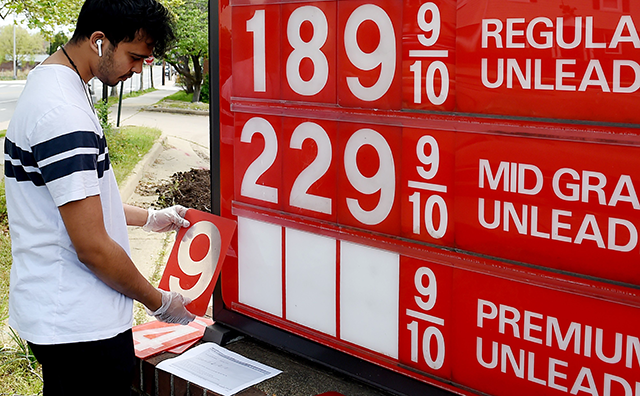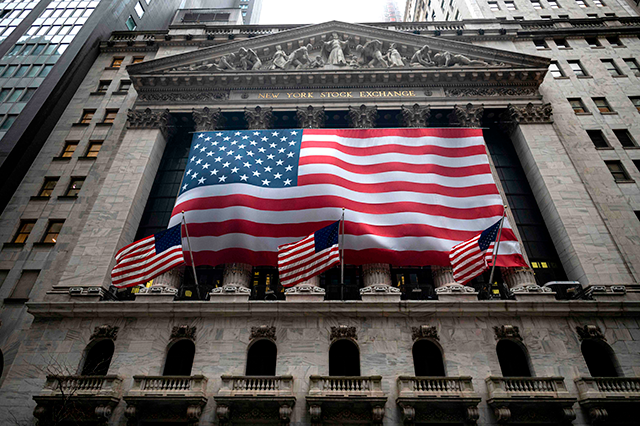You are here
Oil roars back as stock markets worry about growth
By AFP - Apr 23,2020 - Last updated at Apr 23,2020

An employee of a gas station in Arlington, Virginia, adjusts gasoline pump prices on April 21, 2020 (AFP photo)
LONDON — Oil prices made a spectacular comeback on Thursday as fresh US-Iran tensions erupted while equities were slow to build on recent gains as data provided proof of a dire economic fallout from the coronavirus pandemic.
At one point the US crude oil benchmark WTI was up by 20 per cent on the day, having earlier this week plunged below zero.
"Heightened risk in the Middle East" triggered the upturn, said Phillip Futures, after US President Donald Trump tweeted he had "instructed the United States Navy to shoot down and destroy any and all Iranian gunboats if they harass our ships at sea".
Iran, meanwhile, said it put its first military satellite into orbit. Washington alleges the space programme is a cover to develop ballistic missiles.
The tensions offset news of another surge in US crude stockpiles as the pandemic crushes demand for energy.
"Oil prices are enjoying another little bounce on Thursday but don't be fooled, at these levels, the percentage change can be very misleading," cautioned Craig Erlam, an analyst at Oanda.
Things were looking up "as the price doesn't start with a minus", he said, "but I wouldn't bet against visiting those depths again".
'Unprecedented' collapse
Equity markets posted slight gains on both sides of the Atlantic, but traders were nervous as bad economic news kept pouring in.
The eurozone economy headed by Germany is suffering an "unprecedented" collapse according to a PMI index released Thursday by analysis firm IHS Markit.
The company's purchasing manager's index (PMI) dived to a record low in April, confirming private sector gloom that is savaging the 19-nation eurozone.
Markets were not too hopeful as they looked to a meeting of EU leaders who were expected to hammer out a plan to help their economies, but not without much bickering.
In a further sign of the battle ahead for governments, a gauge of Japan's services sector on Thursday came in at a record low for April and pointed to a deep contraction, while a measure of factory activity dropped to its lowest since the financial crisis 11 years ago.
Data showed South Korea's economy contracted 1.4 per cent in January-February, its worst number since 2008.
Related Articles
The price of crude oil surged again on Friday after the Organisation of the Petroleum Exporting Countries (OPEC) said it would talk to non-members, notably Russia, giving investors hope that they will stop a price war which has created market chaos along with crushed demand because of the coronavirus.
LONDON — European stock markets climbed on Thursday as investors focused on plans to ease some coronavirus lockdown restrictions, while the
LONDON — Equities and crude rallied on Tuesday as investors cheered a further easing of lockdowns in some countries, which offset fears of a


















